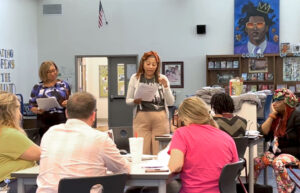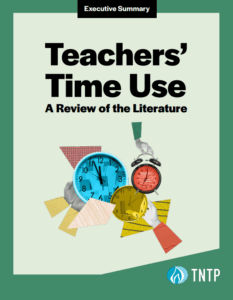I never imagined I would be a teacher. It just didn’t seem possible. When I came to the United States from Santa Ana, El Salvador, I didn’t speak any English as a middle school student. It made things tough for me. My teachers were instrumental in giving me the tools I needed, but I didn’t think I would ever be able to do what they did for me.
I eventually started working in construction—I always loved building things. And while I knew it wasn’t my calling, it led me to an opportunity that would change my life: helping to build a playground at an elementary school in Washington, D.C. I figured my previous experience in construction would be helpful. But being there with a lot of kids, it wasn’t work—it was joyful. I realized that teaching would be my “thing.” It was my life’s purpose. And I had to figure out a way to make it happen.
I’m proud to say that my instinct was right. After honing my skills as an educator in the Capital Teaching Residency at KIPP DC, I’ve been very successful in my seven years as an art, Spanish, physical education, and dance teacher at KIPP DC Promise Academy. My students have been on Inside Edition, CBS, and many other news outlets; they’ve performed at the Capital Salsa Congress. I’m proud of how hard they work every day.
But it wasn’t easy to get here, and for reasons that had nothing to do with my ability to teach. I’m talking about the Praxis exam that is required to become certified as a teacher. The test is designed to be a challenge for someone like me. Since I didn’t come to the United States until middle school, I missed the history and science classes that are foundational to standardized tests. And of course, since English isn’t my first language, the tests took me much longer than the allotted time limit.
To be honest, the Praxis really scared me. I saw it as something that could prevent me from doing what I was meant to do. It wasn’t fair.
And for what? I understand that we should have standards for who should become a teacher. But tests like the Praxis have nothing to do with teaching well. I’ve met teachers who are well educated, from a great university and pass the Praxis with flying colors, but still struggle to reach their students. It’s one thing to pass a test, but can you stay a teacher and change lives? Instead of tests, we should look at how a teacher actually teaches. How are you delivering the curriculum? How are you with your students? Are you making a difference? That matters so much more than your score on a test.
And it’s more than that. My experience as an immigrant—someone who came to a new country and had to work hard to be successful—is valuable for me as a teacher. My students see some of themselves in me. My background is an asset in the classroom. But the Praxis treats it like a liability.
I consider myself lucky to be a teacher. Teaching Latin dance to primarily Black students is special—and they love it. If you bond with a student, it doesn’t matter where they’re from. Through dance, kids express themselves, increase their academic achievement, and learn life skills. It just makes me angry knowing that there are many other great potential teachers out there who are missing out on this opportunity because of barriers like the Praxis. For our kids’ sakes, we need to do better.








